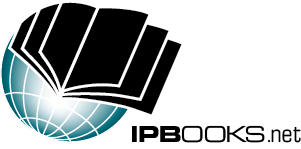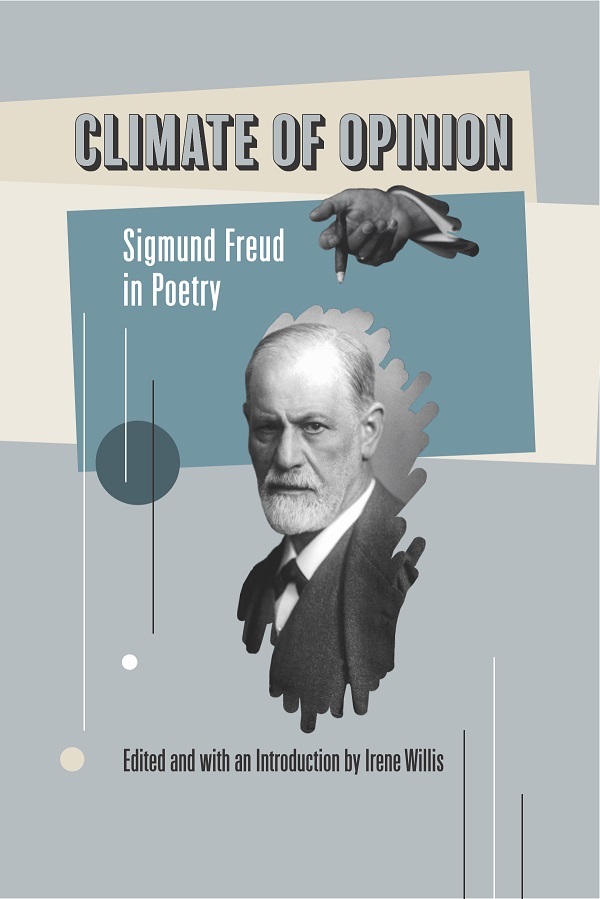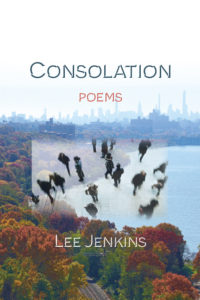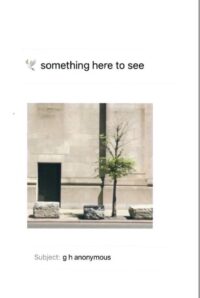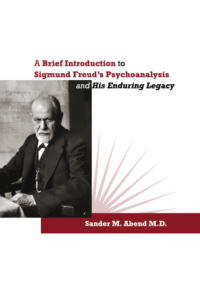Climate of Opinion: Sigmund Freud in Poetry Edited and With an Introduction by Irene Willis
$19.95
Insouciant, serious, funny and profound, Climate of Opinion: Sigmund Freud in Poetry is the book to keep by your couch. This panoply of poems unfolds like an analytic session, from family dynamics through personal antics, to the frustrating, delicately calibrated patient-therapist exchange. Savvy anthologist Irene Willis invites everyone to Freud’s poetry party, from H.D. and Anna Freud to W.H. Auden and Philip Larkin. Willis calls on the next generation of poets, too, from James Cummins and Lynn Emanuel to Louise Gluck, with a brilliant finale by David Lehman—just like the surprise insight at the end of a forty-five minute hour. Climate of Opinion proves that psychic play is more than matched by the poetic imagination.
Molly Peacock, author of The Analyst: Poems.
ABOUT THE EDITOR:
Irene Willis is a poet, writer and longtime educator who has taught at many schools and colleges. Before she ever published poetry, she co-authored a children’s book and two volumes in a major textbook series with her first husband, the late Richard Willis. Years later, with psychoanalyst Arlene Kramer Richards, she co-authored four books for young adults. Her published poems began to appear in the 1970’s, but it wasn’t until 1995, after she had been awarded a Distinguished Artist fellowship by the New Jersey State Council on the Arts, that her first full-length collection, They Tell Me You Danced (University Press of Florida), appeared in print. Since then, she has published three more books of poems: At the Fortune Café (Snake Nation Press, 2005,) winner of the Violet Reed Haas Award and nominated for a National Book Award; Those Flames, a finalist for the Philip Levine Prize and released by Bay Oak Publishers, Ltd.(2009), and Reminder (Word Poetry, 2014). A three-time Pushcart Prize nominee, she has had grants and awards from the New Jersey State Council on the Arts; the Millay Colony for the Arts; the Massachusetts Cultural Council and the Berkshire/Taconic Foundation. The holder of an M.A. and Ph.D. from New York University and M.F.A. in Poetry from New England College, she is Poetry Editor of the web-based International Psychoanalysis, where her column “Poetry Monday” appears monthly. She is a member of the Authors’ Guild, and an Educator Associate of the International Psychoanalytic Association.
INTRODUCTION BY IRENE WILLIS:
This book grew organically. I read poetry all the time – old books, new books, literary journals—and sometime last year began to notice that many poems mentioned Freud by name. Poetry had always reflected Freudian concepts, of course, but suddenly poets seemed to be more conscious of them. Was Freud having, as they say, “a moment” again? Perhaps. At lunch one day with a couple of psychoanalyst friends, I mentioned this and suggested casually—yes, really casually, just as a topic of conversation, –“Someone ought to do an anthology of poems that mention Freud.”
I didn’t mean that I should be that someone, but my lunch companions jumped on it.
“Great idea!” one said. “You should do it.”
“Me? Why? Shouldn’t it be a psychoanalyst?”
“No, you. You’re the poetry maven,” he said, picking at his gluten-free entrée.
So there we were, and here I am, knowing that readers, seeing my name as editor, will be wondering the same thing I did. Why is she the one to do this? Which is why I gave myself such a long—and I hope not self-aggrandizing, these days when we’re all newly conscious of narcissism—“About the Editor” at the beginning of this book. How I feel about it now is happy and proud. I love the cover; it’s blue, the color of memory, the way it should be, and there’s that wonderful picture of old Siggie himself, pen aloft instead of a cigar. Sometimes a pen is just a pen, yes? Because I’m not a psychoanalyst, I can be a bit irreverent, as I’m sure our eclectic readers will understand.
One of my encouragers said, “Why not make it, not just about Freud himself but also about psychoanalysis?”
I thought about that a bit, and so the anthology of poems about Freud morphed into an anthology about Freud, psychoanalysis and, ultimately, about Freudian concepts. Did it become a little too top-heavy with dreams? Possibly. But, as the great man himself said, “Dreams are the royal road to the unconscious.”
What fun this has been—and what a lot of work, except for the first part, gathering the poems, and for the next part, arranging them in an order that made some kind of metaphorical sense (don’t ask me what that means, my unconscious talking perhaps to yours, as poet Kate Light says (page 31) The rest of it was burdensome detail, much of which was handled by the amazingly competent Tamar Schwartz, Managing Editor of IP Books, who undertook to secure permissions for the work of poets I do not know personally, who were most of the dead ones. Believe it or not, one of the greatest dead ones, W.H. Auden, I did know somewhat personally. I met him in the 1950’s when I was undergraduate chair of a college lecture series, introduced him from the stage, handled publicity for his appearance, and as part of my job, took him to dinner at the White Inn in Fredonia, New York—alone, as no one from the English department seemed to have been available, to the amazement of my current poet friends when I tell this story now. He was already wrinkled, as he looks in so many of his pictures, and we had a good conversation, talking at length, as I recall, about current affairs and specifically about Charlie Chaplin, someone I brought up who was much in the news then, with one sort of scandal or another. Auden was warm and cordial, signing a photo as I asked, with my green-ink fountain pen, a photo I sold a few years ago to a rare book dealer, along with a copy of the introduction typed on my old Royal portable. His lecture was just that—a lecture, and not a poetry reading, which no one there seemed to have heard of then—and I remember one thing from it. “A poet,” he said, “is someone who likes to hang around words.”
The longer I thought about this project, the more I thought my whole life had been leading up to it. What I didn’t remember to discuss with my lunch companions was the fact that I began reading Freud when I was twelve years old. I checked out his Basic Writings from the Bloomingdale Branch of the New York City Public Library on the upper West Side because I thought it would help me explain my budding self to my mother. It didn’t. In fact, years later, when she was in her eighties with a group of senior citizens, I heard her ask another woman, “What do you think of these teen-agers?” as ifadolescence were some newly discovered phenomenon.
How do I feel now that the book is done? Happy and proud. Soon after that initial discussion, one of those friends suggested I apply for a grant to support the project, which I did, with the happy result that we received funding from the American Psychoanalytic Foundation. Their generous support includes amounts for the editor, the publisher and all of those who have given us permission to use their poems. As I said to them in the proposal, it is our hope that the book will be read not only by general readers and people in the field, but also by students ofpsychoanalysis, who should find much material in the poems for classroom discussion. I know, having been a teacher of literature and composition for so much of my life, I would have a field day with these poems in the classroom. What a treasure trove we have here! (And what a mixed metaphor!)
The poems didn’t come just from my first harvest, which was mostly from already published books and journals. After that gathering, I sent out a call to some poet friends, who forwarded it to others, and then to a couple ofmembership lists that I was part of. Later Duotrope (which I had not heard of) and a couple of other lists ofwhich were also previously unknown to me, picked up the call, and submissions came flooding in. My post office mailbox was full each time I showed up, with poems from all over the world –so many, in fact, that I was forced to decline even some quite good ones. It was a surprise to me, although it shouldn’t have been, that so many were from psychoanalysts them-selves. But most were from well-published poets, with impressive academic as well as poetry credentials, as you will see in the Contributors’ notes at the end of this book. What you will also see is how eclectic a gathering we have, with famous names interspersed among the lesser-known. I tried to select the best, andhope you will agree that this process has made for an absorbing, interesting read. Fittingly, of course, the anthology opens with Auden’s famous “To Sigmund Freud,” the poem which gave us our title and explains that, no, the great man is not just having a moment. He’s part of the way we think now. Whether you’re reading this poem for the first time, or re-reading it, I think you willagree with what Auden says in this stanza:
For one who’d lived among enemies so long:
If often he was wrong, and, at times, absurd,
To us he is no more a person
Now, but a whole climate of opinion
This is followed by another famous poem, “The Master,” by H.D. (Hilda Doolittle), who was an early patient of Freud’s, having sought him out, as I understand, to deal with her bisexuality and who, as you will see in the poem, was ambivalent not only about that but about him. What he did do for her, and for us, was to encourage her poetry.
It won’t shock psychoanalysts but general readers may be surprised to learn that his own daughter, Anna, was also one of his patients. A couple of her poems are also included here (pages 15, 16). I don’t want to distract you from the pleasure of discovering the rest of the poems by yourselves, except to call your attention to a couple of the earliest irreverent ones, Philip Larkin’s witty “This Be the Verse” (page 25) and Dorothy Parker’s sonnet, “The Passionate Freudian to His Love.”(pages 23-24)
One of the best parts, for me, of this project, was not only gathering the poems but the background reading I did while getting ready for the first harvest. In the process I acquired copies of many fascinating articles and a whole shelf of books about this man who, in my own thinking now, ismore important than ever. More about that in the Afterword. As they often say in restaurants before you pick up your fork, “Enjoy!
In stock
